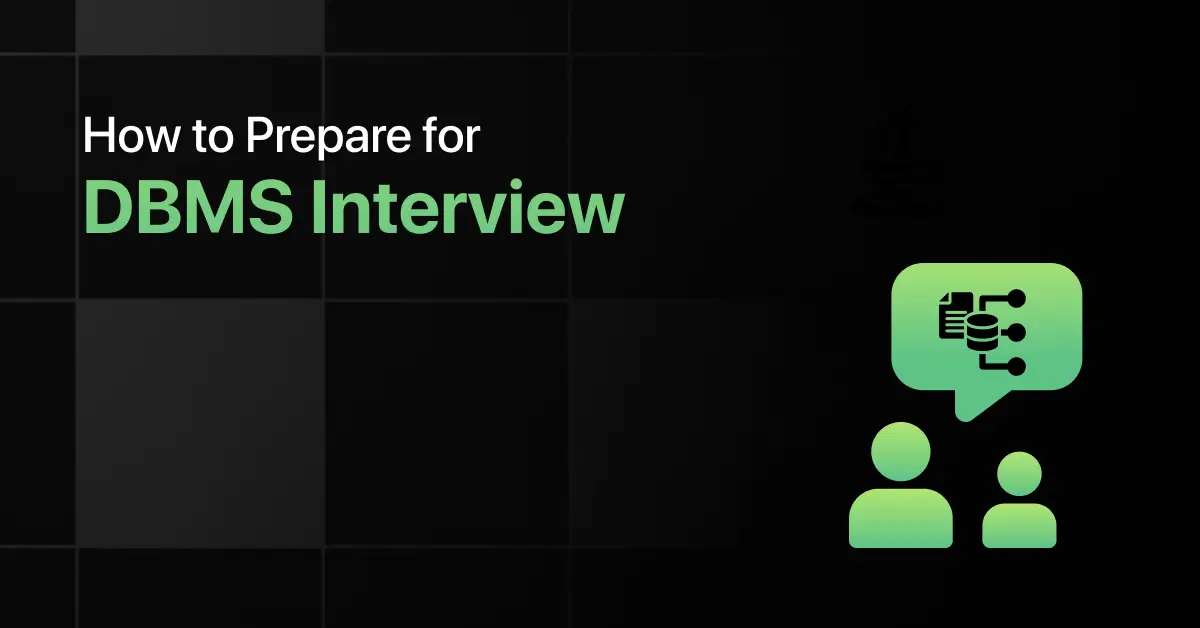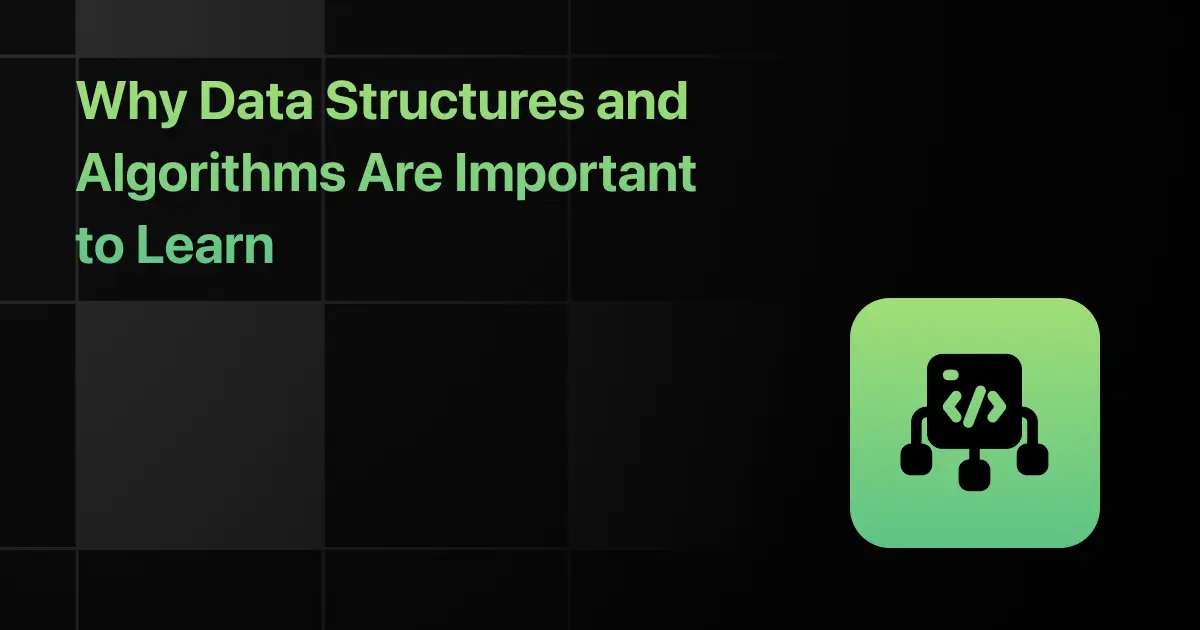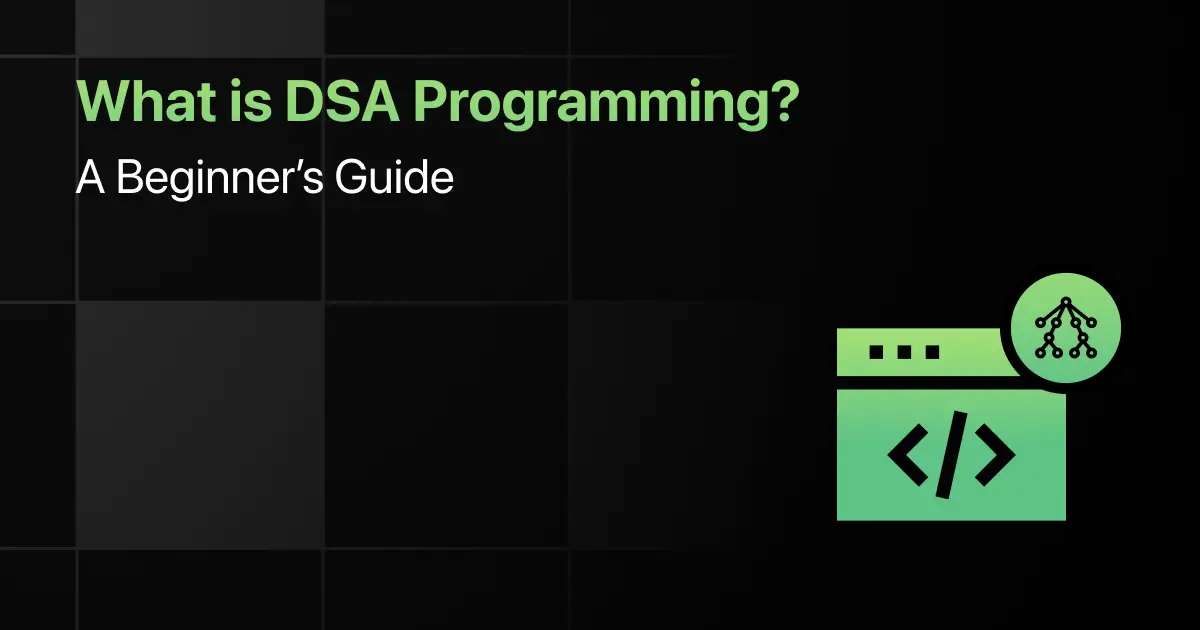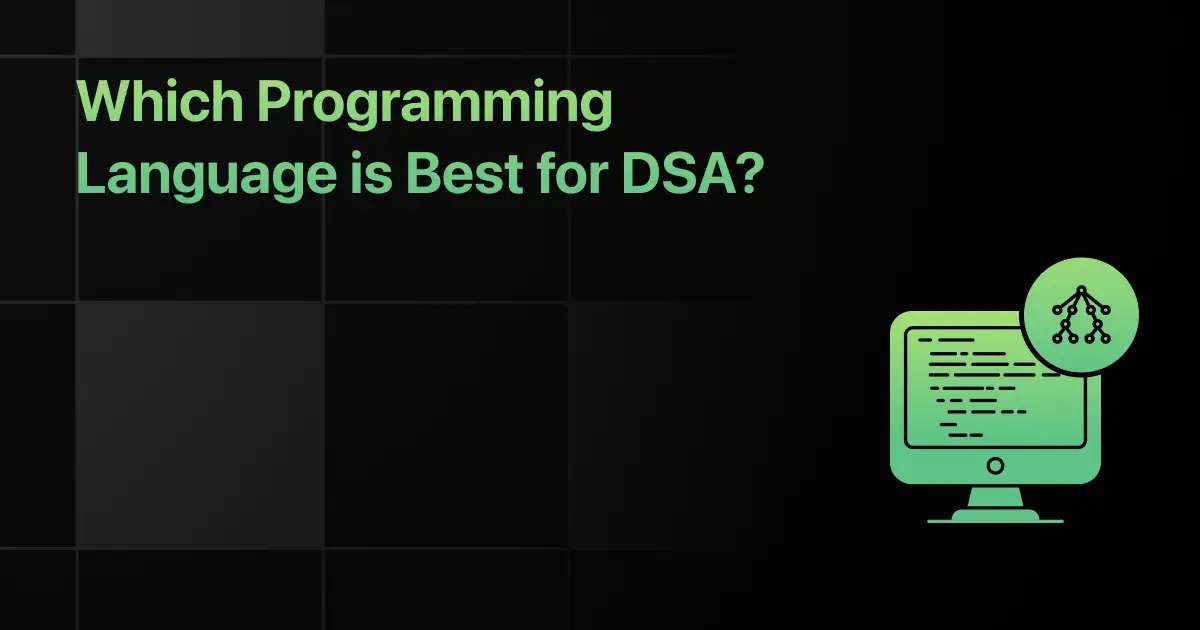How to Prepare for DBMS Interview

Are you preparing for a DBMS interview but unsure how to organize your study plan?
Many candidates struggle to balance theory, SQL query practice, and conceptual clarity in database management systems.
This blog will guide you with a structured approach to DBMS interview preparation, covering core concepts, commonly asked questions, and practical tips to help you perform confidently.
DBMS Interview Preparation Guide
Preparing for a DBMS interview requires a solid understanding of database concepts such as data models, normalization, indexing, and transaction management. Interviewers often test both theoretical knowledge and the ability to apply concepts in practical scenarios like SQL queries and schema design.
To make your preparation more effective, it’s useful to combine structured learning with insights from real interview experiences, which highlight the types of DBMS questions companies frequently ask.
1. Master the Core Fundamentals
Before moving to advanced problem-solving, it is important to build a strong base in DBMS concepts. Interviewers often begin with theoretical questions to check your understanding of databases and their applications. Key areas to revise include:
- Data models (hierarchical, relational, network, and entity-relationship model)
- Relational algebra and relational calculus
- Normalization and types of normal forms (1NF, 2NF, 3NF, BCNF)
- Keys: primary key, foreign key, candidate key, super key
- Functional dependencies
- Indexing and hashing techniques
- Transactions and ACID properties
- Concurrency control and deadlock handling
- File organization and storage structures
- Database security and integrity constraints
- A clear understanding of these fundamentals helps you answer both conceptual and scenario-based questions confidently.
2. Practice Coding Problems Consistently
Most DBMS interviews include practical rounds where you will be asked to write queries or design database schemas. Practicing SQL queries regularly is essential to perform well in these sections.
Focus on problems involving joins, subqueries, aggregations, nested queries, and performance-based query optimization. Work on schema design questions where you apply normalization principles and create efficient relationships between tables.
Consistent practice using DBMS Exercises will improve both accuracy and speed, ensuring you are prepared for real interview challenges.
3. Prepare for Commonly Asked Interview Questions
DBMS interviews often include frequently asked conceptual and applied questions. Reviewing these in advance helps you understand the common patterns and expectations. Some common DBMS interview questions include:
- What are the different types of data models in DBMS?
- Explain the differences between relational algebra and relational calculus.
- What are primary keys, foreign keys, and candidate keys?
- Explain normalization and why it is important.
- What are functional dependencies in DBMS?
- How do indexing and hashing improve query performance?
- What are transactions and what do ACID properties mean?
- Explain concurrency control and how deadlocks are handled.
- What is the difference between DELETE, TRUNCATE, and DROP commands?
- How do you find the second-highest salary from an employee table?
- What is the difference between UNION and JOIN operations?
- Explain the difference between clustered and non-clustered indexes.
- What are stored procedures and triggers in DBMS?
- How is database security ensured in DBMS?
- What is the difference between OLTP and OLAP systems?
Preparing answers to these questions ensures you are ready for both technical and HR discussions around databases.
4. Preparation Tips
A well-planned preparation strategy can help you cover DBMS systematically before your interview. Start by dividing your study time between core concepts, query practice, and interview-style questions.
Take mock interviews to improve your ability to explain database designs and query logic under time pressure. Focus on writing optimized queries and practicing schema design, as efficiency and clarity are often evaluated.
Working on small DBMS projects, such as designing a library management system or student database, can give you practical experience and strong talking points.
Lastly, spend the final day revising important concepts instead of learning new ones to remain confident and clear-minded.
Final Words
Preparing for a DBMS interview requires a balance of strong theoretical knowledge and consistent query practice.
With a clear study plan and regular practice, you can approach both conceptual and practical rounds with confidence.
Explore More Interview Preparation for
- Python
- Software Developer
- C++
- Machine Learning
- Full Stack Developer
- Front End Developer
- .NET
- C#
- PHP
- Angular
- Node JS
- C Programming
- JavaScript
- Java
- SQL
- React
FAQs
To prepare for a DBMS interview as a fresher, focus on learning core concepts, practicing SQL queries, and revising common interview questions.
The most important DBMS topics for interviews include data models, normalization, indexing, transactions, and concurrency control.
You should practice SQL queries daily on joins, subqueries, aggregations, and schema design until you can solve them accurately within time limits.
The best platforms to practice DBMS coding questions are PlacementPreparation.io, LeetCode, HackerRank, and GeeksforGeeks.
To revise DBMS concepts one day before the interview, quickly review normalization, indexing, ACID properties, and frequently asked SQL queries.
PlacementPreparation.io is useful for DBMS interview preparation because it offers structured exercises, MCQs, and real interview questions tailored for students.
Related Posts


Importance of Data Structures and Algorithms (DSA)
Why is everyone constantly talking about DSA, and why is it considered so important for programming? Many beginners focus only on …
Warning: Undefined variable $post_id in /var/www/wordpress/wp-content/themes/placementpreparation/template-parts/popup-zenlite.php on line 1050








